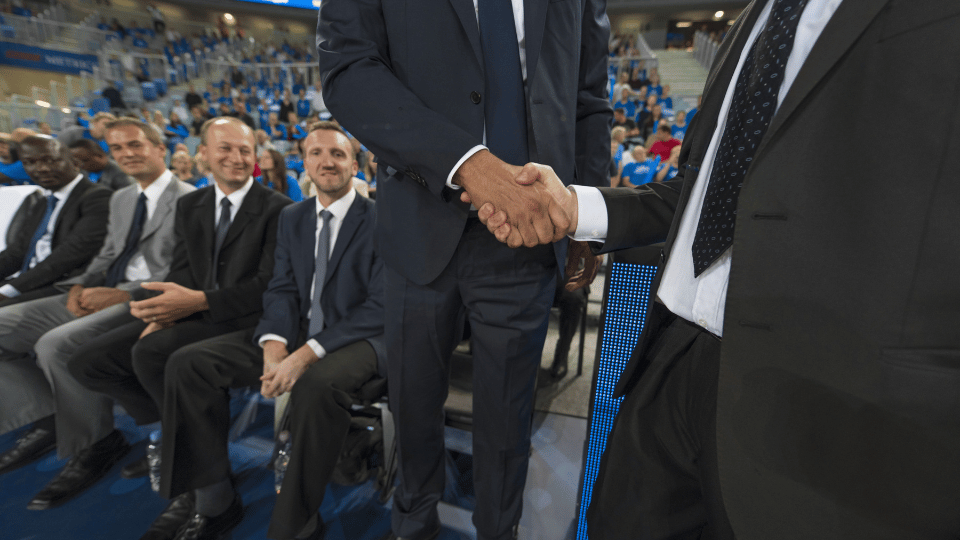Sports Negotiation: Mastering the Art of Deal-Making
Negotiation is an essential skill in the world of sports management. Whether you’re a player agent, team executive, or sports marketer, the ability to negotiate effectively can make or break your career. In this article, we will explore the key principles and strategies of sports negotiation that can help you achieve successful outcomes in the highly competitive sports industry.
Preparation is Key
Before entering any negotiation, thorough preparation is crucial. Research the parties involved, understand their needs, goals, and potential objections. Knowing the market value of the players, teams, or sponsorships you are negotiating will give you an edge.
Define Your Objectives
Clearly define your objectives and desired outcomes before entering a negotiation. Identify your priorities and non-negotiables, but also be open to compromise. Setting realistic goals will help you stay focused and make informed decisions during the negotiation process.
Build Relationships
Negotiation is not just about getting the best deal; it’s also about building long-term relationships. Take the time to understand the other party’s perspective and find common ground. Building trust and rapport can lead to mutually beneficial agreements and future collaborations.
Effective Communication
Effective communication is the backbone of successful negotiation. Clearly articulate your points, actively listen to the other party, and ask clarifying questions. Focus on finding solutions rather than getting caught up in conflicts. Be respectful and professional throughout the process.
Embrace Win-Win Solutions
Strive for win-win outcomes where both parties feel satisfied with the agreement. Look for creative solutions that address the interests of both sides. Collaborative negotiation can lead to stronger partnerships and increased value for all stakeholders involved.
Understand Power Dynamics
Power dynamics play a significant role in sports negotiation. Recognize the sources of power held by each party and how they influence the negotiation process. Leverage your strengths while being mindful of the other party’s power dynamics to navigate the negotiation successfully.
Stay Calm and Composed
Negotiations can be intense and emotionally charged, but it’s crucial to stay calm and composed. Emotions can cloud judgment and hinder productive discussions. Maintain a professional demeanor and focus on the facts and objectives rather than personal feelings.
Be Flexible and Adaptive
Flexibility is key in negotiation. Be prepared to adapt and adjust your strategy as the negotiation unfolds. Sometimes unexpected opportunities or challenges arise, and being flexible allows you to seize opportunities or find creative solutions to overcome obstacles.
Seek Expertise and Training
To enhance your negotiation skills, seek out expertise and training. Online courses, such as the NYU Fundamentals of Global Sports Management offered by Yellowbrick, can provide valuable insights and practical strategies to improve your negotiation abilities.
Learn from Experience
Every negotiation is an opportunity to learn and improve. Reflect on your past negotiations, identify areas for growth, and apply those lessons to future negotiations. Experience is a valuable teacher, and continuous learning will help you refine your negotiation skills over time.
Conclusion
Mastering the art of sports negotiation is a continuous journey that requires a combination of knowledge, experience, and interpersonal skills. By following these tips and practicing negotiation in real-world scenarios, you can become a skilled negotiator and excel in the dynamic and competitive sports industry.
Now that you have a solid understanding of the principles and strategies of sports negotiation, it’s time to put them into practice. Remember, negotiation is not just about getting the best deal; it’s about building relationships and finding win-win solutions. So go out there, embrace the art of negotiation, and take your sports management career to new heights.
Key Takeaways:
- Preparation is crucial before entering any negotiation. Research the parties involved and understand their needs and goals.
- Clearly define your objectives and be open to compromise during the negotiation process.
- Building relationships and trust is essential for successful negotiations.
- Effective communication, including active listening, is vital in negotiation.
- Strive for win-win solutions that address the interests of both parties.
- Understand power dynamics and leverage your strengths while being mindful of the other party’s power.
- Stay calm and composed to ensure productive discussions.
- Be flexible and adaptable to seize unexpected opportunities or overcome obstacles.
- Seek expertise and training, such as the NYU Fundamentals of Global Sports Management offered by Yellowbrick, to enhance your negotiation skills.
- Learn from experience and continuously refine your negotiation skills over time.
Now that you have learned the key principles and strategies of sports negotiation, it’s time to put them into practice. Remember, negotiation is not just about getting the best deal; it’s about building relationships and finding win-win solutions. Consider taking the NYU Fundamentals of Global Sports Management online course and certificate program offered by Yellowbrick to further enhance your negotiation abilities.




